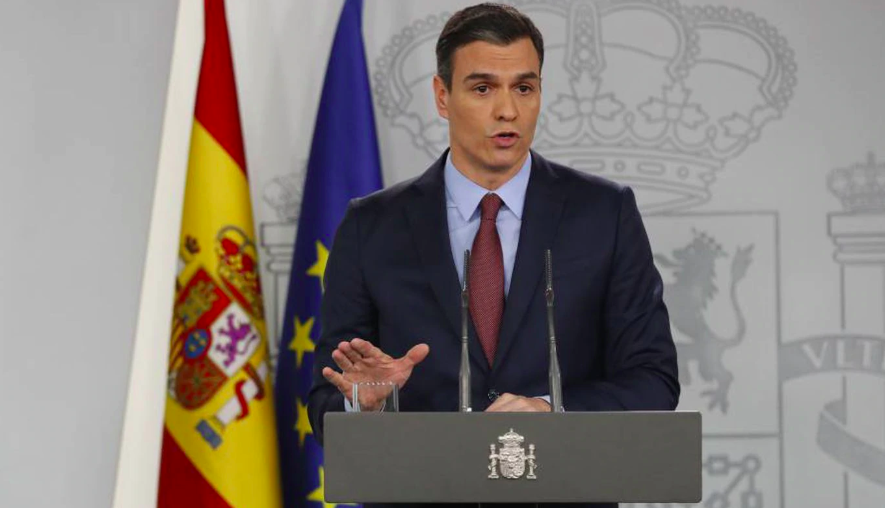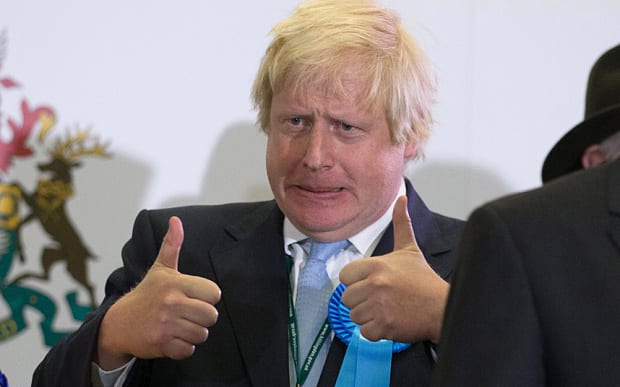COMPARING Spain and the UK’s handling of the coronavirus pandemic is like comparing chalk and cheese.
While Spain seems to have the people’s health as a first priority, for the callous Tory-run UK it seems to be all about the money.
Prime Minister Boris Johnson yesterday told people in Britain to avoid pubs, clubs, theatres and restaurants.
Unlike in Spain, he refused to make closures mandatory, which would have allowed the affected businesses to claim compensation.

He also refused to outlaw large public gatherings, rather warning that emergency services would no longer be able to be present at them.
Johnson explained last week he would not be shutting schools, while telling people with symptoms to self-isolate for just a week – no mention of social distancing or other suggested measures.
Not much had changed as the number of cases in the UK surpassed 1,500 yesterday.
By contrast, Spain began closing schools on March 9 when it had just over 1,000 cases, while prime minister Pedro Sanchez outlined his government’s ‘shock therapy plan’ to tackle the virus.
Boris’s relatively slow reaction led Richard Horton, editor-in-chief of medical journal The Lancet, to tweet: “What is happening in Italy is real and taking place now. Our government is not preparing us for that reality. We need immediate and assertive social distancing and closure policies. We need to prepare the NHS. This is a serious plea.”
And spare a thought for our American cousins who are being led by an idiot – not my words (mine are much harsher), but those of Elaine Kamarck, senior fellow at the Washington-based think tank the Brookings Institution.
“He’s an idiot,” she said, “He’s handled it horribly. When things are rough, you want somebody who can exude confidence and competence and Trump does not do that.”

Two years ago he got rid of the country’s global health security team which was literally designed to prepare for a pandemic like COVID-19.
When the virus exploded in China, and in a bid to appease leader Xi Jinping, he said the virus was ‘totally under control’, even as it began spreading to other countries.
He later rejected an offer of a German-made diagnostic test which was approved by the World Health Organisation and accepted by many countries. The US would later suffer a nationwide shortage of test kits at its most critical moment.
According to the Guardian, as of yesterday only 11,000 tests had been carried out across the US, whereas South Korea was carrying out 10,000 DAILY.
America now has more than 4,700 cases after Trump said the number was ‘very close to zero’ at the end of February.
Back in the UK, a weak leadership from Johnson is also making workers nervous.
People have been told to work at home when they can while British billionaire Richard Branson has told a portion of his Virgin staff to take two months of unpaid leave. And how on earth are they to last over two months without pay? Especially those who live in London with eye-watering rents.
Thank God I live in Spain, where the government has vowed to do everything it can to cushion the blow for small and medium businesses and workers.
It is set to approve a bill that will allow SMEs and freelancers (autonomos) to delay their tax payments by six months.

New measures to protect workers are to be announced today and are also expected to see those who have lost their jobs be given immediate access to unemployment benefits.
France, too, has shown support to its workers, announcing a €45 billion aid package for businesses and affected employees.
While London, the economic engine of Britain, is seeing the fastest spread of coronavirus in the UK with over 400 cases, the real numbers are hard to know because health authorities there have stopped testing people who do not need hospitalisation.
Yet no businesses have been ordered to close while people have only been ‘advised’ to not attend events like the St Patrick’s Day celebrations tonight.
Former director of the World Health Organisation told The Guardian: “You test the population like crazy, find out where the cases are, immediately quarantine them and do contact tracing and get them out of the community. This deals with family clusters. That’s the key bedrock of getting this under control.”
That was the approach by Spain, who worked tirelessly to trace down the origin of each of its infections as it began to spread across the territory.
And despite these measures, it now has almost 10,000 cases.
The whole country is on lockdown for at least two weeks, with all businesses closed – apart from a few essential stores – and people ordered to remain in their homes.
It might be testing, but there’s a comfort in knowing that the government here is taking a decisive approach to this unprecedented crisis.
Click here to read more Spain News from The Olive Press.








